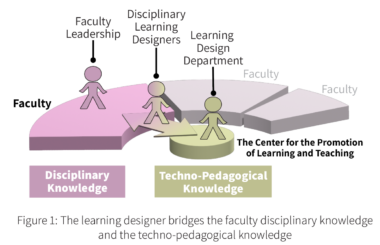The Technion, led by the Center for Promotion of Learning and Teaching, has chosen to implement and promote a working model for improving, advancing, and developing education in collaboration with the various faculties at the Technion, following The Science Education Initiative approach. To the best of our knowledge, the Technion is the first institution in Israel to adopt this approach. The model, developed at the University of Colorado by Prof. Carl Weiman and described in his book “Improving How Universities Teach Science: Lessons from the Science Education Initiative,” aims primarily at improving and enhancing STEM education at universities and making it more tailored, up-to-date, and accessible for various teaching staff. This is a unique model that relies on pedagogical experts from the Center for Promotion of Learning and Teaching who work closely with faculty members, teaching teams, and administration in the faculties. To this purpose, the Technion has defined a new role: Faculty Learning Designer.
The interdisciplinary Learning Designers are individuals with a passion and commitment to excellence in teaching, and they have a hybrid background in education and the relevant discipline. These individuals report to the Center for Promotion of Learning and Teaching but work within the faculties. The implication is the establishment of a human infrastructure with disciplinary-pedagogical-technological expertise (Techno-Pedagogical Content Knowledge, TPC).
The model allows for addressing the unique needs of each faculty in a more tailored manner, creating synergy between different courses, thereby increasing the impact on learning processes on campus, and generating a professional human infrastructure that serves as a faculty and Technion-wide organizational knowledge base.
The following diagram illustrates the work model at the faculty level:

Cynthia Heiner talks about the Carl Wieman Science Education Initiative (CWSEI), a multi year project aimed at improving undergraduate science education:


